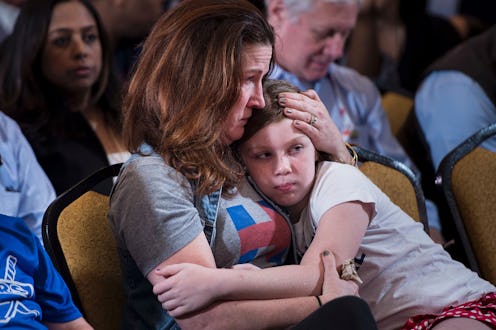News
We Need To Reform The Electoral College
Donald Trump will likely be the fifth American to win the presidency without winning the popular vote. The first three all took office in the 1800s; the last before Trump was George W. Bush in 2000. How is something that so glaringly flies in the face of the definition of democracy possible? The fact that the presidency is decided not by the national popular vote, but by electoral votes, enables this scenario to occur. That's why the 2016 election should inspire us to do the long overdue: to work to reform the Electoral College system.
Let's start by outlining the problem. Each state has as many electors as it has members of Congress. In 48 states, all electoral votes go to whichever candidate wins a plurality of the popular vote within the state (in Maine and Nebraska, they are distributed based on who wins congressional districts). So, a small number of electoral votes represent a larger number of popular votes.
This is problematic for proportional representation because popular votes in different states carry unequal weight. For example, each of Wyoming's three electoral votes represent about 143,000 of the state's voting-age public, while one electoral vote in California represents about 500,000 people. Another example: There are more people in Wisconsin than in Minnesota, but they both have the same number of electoral votes. Unless every vote counts equally, it's possible for a candidate to win an election without winning the most popular votes.
Officially dismantling the Electoral College to remedy this ridiculous possibility (and sometimes, actuality) is a tall order. As the College is established by the Constitution, completely doing away with it would require two-thirds of both the House and Senate to vote to do so, along with adoption of the measure by 38 states.
There's another way — through the states alone. If states that together possess at least 270 electoral votes — the majority needed to win the presidency — agree to allot them to the winner of the national popular vote, then the Electoral College system would be rendered moot. So far, D.C. and 10 states have signed onto the National Popular Vote Compact: Hawaii, New York, Vermont, Rhode Island, Maryland, Massachusetts, Washington, New Jersey, Illinois, and California. Together, they have 165 electoral votes.
You can write your state legislators to make it known that you expect them to support national popular vote legislation. And don't be dissuaded if your state's legislature is Republican-dominated; remember, Trump wasn't exactly greeted to a warm welcome as the party's nominee.
You might be extra motivated to do so if you think of it this way: 2000 and 2016 weren't necessarily flukes, and the scenario of winning the election without winning the popular vote could become more common going forward. Democrats have won the popular vote in six of the past seven presidential elections, indicating that, generally, there is more support for Democrats than Republicans. However, as Vox explained, Democrats have been gaining ground in "safe" states, making it less likely that those gains would affect electoral math. With a tightly-divided electorate, the inability of a Democratic edge to impact electoral math makes a near-future repeat more likely.
Whether it's the inane Electoral College system or any other controversial element of the electoral process that sparked ire throughout the 2016 election — such as closed primaries or disproportionate, insubstantial media coverage — nothing will change for the better unless we work for that change in between election years rather than forgetting about the problems until they arise again. Stay busy.
